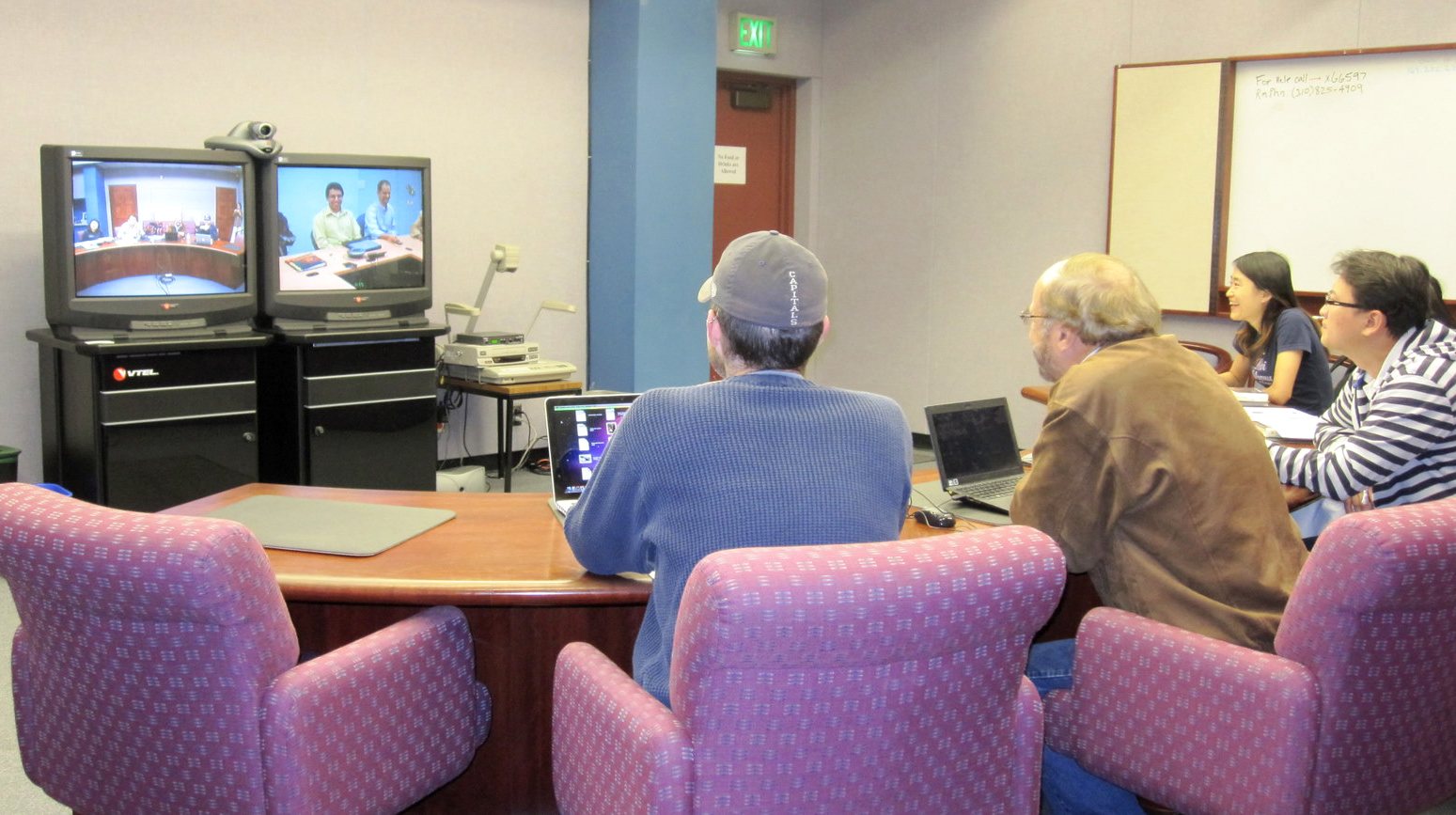UCLA Center for Korean Studies offers e-classes via Skype for students in Mexico and Argentina

courtesy of Sejung Kim
Students gather around a television while they participate in a video-chat session. A Korean studies e-school through UCLA offers opportunities for students living in Latin America.
By Emily Suh
Feb. 6, 2012 1:27 a.m.
Grecia Pinto first discovered her interest in Korean studies when she visited a Korean art exhibition at the Tamayo Museum of Contemporary Art in Mexico.
A few days later, Pinto, a fourth-year international relations student at the National Autonomous University of Mexico, enrolled in an online Korean politics course offered by UCLA via Skype.
The course, titled “International Politics in Northeast Asia: Korea in Its Regional Context,” was one of two courses offered in fall 2011 by the UCLA Center for Korean Studies to 27 students at three Latin American universities ““ National Autonomous University of Mexico, Colegio de México and National University of La Plata in Argentina.
Pinto said she heard about the class through a professor who brought her and other students to the Korean art exhibition. The courses are taught across continents through videoconferencing technology, or Skype.
There were a few technical difficulties at first, but these were quickly fixed by the technology support staff, Pinto said.
“Most of the time, it felt like just like any other class,” Pinto said.
The Korea Foundation, an agency based in South Korea that promotes Korean studies education and research abroad, gave UCLA more than $200,000 to pioneer and host this e-school program for the 2011-2012 year, said John Duncan, director of the UC Center for Korean Studies. Duncan also taught the graduate course on early modern Korean history.
UCLA was chosen to pioneer the program because the campus had prior experience conducting Korean studies classes and researching with Latin American universities, said Sejung Kim, assistant director of the Korean studies center.
Latin America may seem like an unusual place to teach Korean studies, but Duncan said there is a growing interest in the subject because of shared histories between the two regions.
“A lot of Latin Americans feel a kinship with Korea because (Latin American countries and South Korea) had similarly difficult economic times starting in the 1950s,” Duncan said. “South Korea also went through a period of military dictatorship, and many Latin American countries have gone through the same thing at one point or another.”
South Korea built up their economy at a rapid rate following World War II ““ something Latin Americans want to emulate, Duncan said.
Pinto was mainly interested in Korea’s development following the war.
“I think it’s important to look at how Korea has done things and see if we can learn something to apply to Mexico,” Pinto said.
Matthew Lauer, a first-year doctoral student in Asian languages and cultures at UCLA, audited the graduate course offered in the program. Lauer said having discussions with classmates from different countries made it easier to analyze Korean history in comparison with other regions.
“It can be very instructive to extend beyond our geographical fences and to compare across cultures,” Lauer said. “I found the opportunity to get (Latin) American perspective on Korean issues very valuable.”
Ultimately, the UCLA Center for Korean Studies wants to help develop a new generation of Korean studies scholars in Latin America, Duncan said.
Two more courses on international relations and the political economy of Korea will be offered in the spring semester through the e-school, Duncan said.
In addition, at least one course will be offered to Latin American students in Spanish or Portuguese in the 2012-2013 school year.

